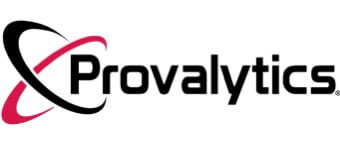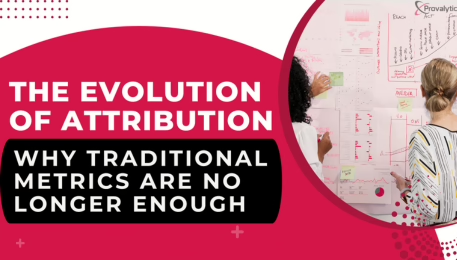The Evolution of Attribution: Why Traditional Metrics Are No Longer Enough
Marketing world increasingly shaped by complex consumer journeys and stringent privacy regulations, the way we measure success needs a radical update. Traditional metrics like last-click attribution and single-channel performance indicators once served as reliable benchmarks. But as marketing has evolved, so too has the need for more nuanced, privacy-compliant insights. Today’s consumers interact with brands through multiple touchpoints, both online and offline, and they expect their privacy to be respected along the way. This has left marketers facing a pressing question: how can we understand what drives conversions without relying on outdated, intrusive methods?
The Limitations of Traditional Metrics
Traditional attribution methods, such as last-click and first-click models, were effective in a simpler time. However, they only scratch the surface of the customer journey, focusing narrowly on one or two touchpoints rather than giving a holistic view of the full path to conversion. Today, consumers engage with brands across multiple channels—social media, email, search, video, and more. Limiting attribution to a single point doesn’t capture the complexity or influence of a multi-channel journey.
🚀 Yes, I Want The 2026 Playbook!
Moreover, these traditional metrics rely heavily on third-party cookies, which are quickly becoming obsolete due to privacy-first initiatives. As companies like Apple and Google prioritize user privacy, tracking and targeting customers is increasingly difficult, leaving marketers with fewer insights and more blind spots.
Why Traditional Metrics Fall Short in a Privacy-First World
With privacy regulations like GDPR and CCPA, businesses are expected to collect and manage data responsibly, prioritizing consumer privacy. Consequently, third-party cookies are being phased out, eliminating one of the primary data sources that marketers have relied on for years. This shift has made it clear that relying solely on traditional attribution models is not only ineffective but also incompatible with modern privacy standards.
As brands strive to adapt to this new reality, they need attribution models that don’t rely on invasive data collection. This is where Provalytics’ approach shines, using AI to drive attribution and planning while respecting consumer privacy. By leveraging aggregated, non-personal data, Provalytics offers a future-proof solution that aligns with privacy regulations while providing valuable insights.
Provalytics: A Modern Approach to Attribution
Provalytics redefines attribution by blending two powerful methodologies—Marketing Mix Modeling (MMM) and Multi-Touch Attribution (MTA). This approach provides a more comprehensive view of marketing effectiveness, enabling brands to understand the contribution of each channel without relying on personal data.
- Marketing Mix Modeling (MMM)- MMM analyzes how various marketing inputs (such as TV ads, digital campaigns, promotions, etc.) impact overall sales. By using aggregated data, it helps marketers understand which channels drive results without needing individual-level tracking. MMM is particularly useful for evaluating offline channels and understanding long-term effects on brand performance.
- Multi-Touch Attribution (MTA) – While MMM offers a broad view, MTA provides a granular understanding of how individual interactions contribute to conversions. Provalytics’ MTA approach deduplicates conversions, integrates data from walled gardens, and attributes credit across the entire journey. This offers marketers actionable insights into which combinations of touchpoints are most effective in driving conversions.
Key Advantages of Provalytics’ Attribution Approach
Unified View Across Channels: Provalytics’ attribution approach provides a single view of both digital and offline marketing efforts. This enables brands to see how channels interact and impact each other, creating a unified measurement system that reflects the full customer journey.
- Privacy-First Attribution: Rather than relying on invasive tracking, Provalytics respects consumer privacy by using aggregated, non-personal data. This future-proof solution ensures marketers can continue to measure effectiveness without compromising privacy compliance.
- Deduplicated Conversions: Provalytics eliminates double-counting of conversions, which is common in traditional metrics. By deduplicating conversions, Provalytics delivers more accurate results, ensuring each conversion is counted only once.
- Walled Garden Integration: Traditional attribution models often miss data within walled gardens like Facebook and Google, but Provalytics integrates these key platforms to provide a comprehensive view.
Why Marketers Need to Evolve
In today’s competitive landscape, marketers can’t afford to rely on outdated models that offer incomplete or skewed insights. By moving away from traditional metrics, marketers can focus on gaining real insights that drive results. Modern attribution methods, like those used by Provalytics, empower marketers to make informed decisions, optimize campaigns, and ultimately grow their business.
Provalytics enables you to understand which strategies are working, which aren’t, and where to invest next for maximum impact. With a data-driven, privacy-first approach, Provalytics delivers the tools marketers need to succeed in a world where privacy and accuracy are equally paramount.
As privacy regulations continue to evolve and data tracking becomes more challenging, brands need solutions that adapt and remain compliant without sacrificing insight quality. Provalytics is designed to meet these demands, providing marketers with AI-driven attribution that’s reliable, transparent, and built for a future where traditional metrics are no longer enough.
By blending MMM and MTA, Provalytics offers a powerful alternative that enables marketers to fully understand and leverage the customer journey—no cookies, no invasive tracking, just actionable insights that drive smarter marketing decisions.


